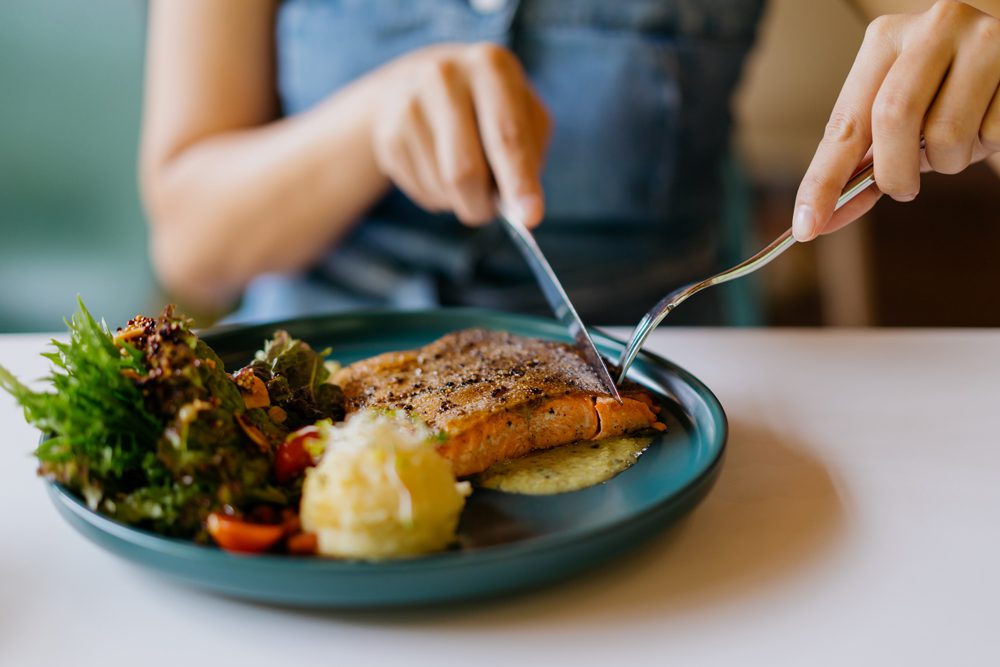Are you a Food Network fan? Maybe you are an avid watcher of Chopped or Diners, Drive-Ins, and Dives. Or maybe you satisfy your need for food-based television on another network or service. Maybe you dig The Great British Bake Off or MasterChef, or even Crime Scene Kitchen.
When you think about it, food television is kind of a weird phenomenon. Sure, there are plenty of shows that show you how to make various dishes, and that makes sense. But there are also countless shows during which you just watch other people cook—and then watch other people eat and judge the food. You, the viewer, can’t taste the food. Heck, you can’t even smell it. And yet, those shows attract scads of loyal viewers—perhaps you among them.
Why would that be? Well, many folks just enjoy watching any sort of competition—but that probably does not completely explain it. Instead, it seems likely that the importance of food in everyone’s life adds an interesting ingredient (forgive us) to the mix. After all, we spend a fair amount of time thinking about, making, or acquiring, and eating food. Maybe it makes sense that we watch TV about it, too.
Still, even the most excited watcher of food shows probably struggles from time to time to make healthy eating choices. But if that person—perhaps you yourself—is in recovery from a substance use disorder, it is especially important to make quality decisions around food. In this series, we’ll look at the food choices you make throughout the day—and how to make more decisions that support your ongoing recovery.
We will start with breakfast and include some thoughts about hydration, too. But first, a disclaimer: We are not nutritionists. If you are planning to make significant changes to your diet, we recommend talking with your doctor.
It’s The Start of Your Day. Make a Good Choice.
It does not seem fair that you have to make good decisions first thing in the morning. And the truth is, many folks do not. Many people grab something sugary and eat it on the run. Others just skip the meal altogether as they rush around to get to work or school.
Neither of those options is the way to go in the morning. A much better approach? Eat a healthy combination of protein, fiber, and other nutrients. A piece of fruit, some whole wheat toast, and a couple of eggs can add up to a great breakfast. And there are plenty of other options, too.
Now, making time for a healthy breakfast might mean changing some longstanding habits and making different choices at the grocery store. But making even small changes can have health benefits—and support your recovery.
When it Comes to Hydration, You Can’t Beat Water
Sodas. Energy drinks. Fancy coffees. The available unhealthy beverage options are plentiful. But what really helps keep you healthy and hydrated is the simplest option: water.
Water is free of sugar and caffeine and does a great job when it comes to keeping your body and brain operating well. Other drinks—including green, white, and herbal teas as well as black tea or black coffee—can be good choices, too. As long as you don’t drink too much caffeine (especially late in the day when it is most likely to disrupt your sleep), you can enjoy these beverages knowing that they are contributing to your health rather than undermining it—and contributing to your recovery by extension.
We’re Not Trying to Deprive You of the Occasional Treat
It is possible you read all of the above and thought you would rather be unhealthy than limited to the kinds of food and drinks we have described. So we want to be clear: An occasional indulgence is not the end of the world. Have a cinnamon roll or your favorite childhood cereal. Grab a mocha now and then. The key thing we are suggesting is moving toward healthier choices more of the time. The benefits to your health and your recovery are real and substantial.
Next Time Out: Lunch and the Afternoon Snack
We will tackle the midday meal and the afternoon munchies in the next entry in this series. There are plenty of delicious and healthy options to consider.
Helping You Is on Our Menu
At The Farley Center—located in Williamsburg, Virginia—we are committed to helping individuals struggling with drugs or alcohol leave those substances behind so they can begin their recovery journey. Our approach includes personalized treatment plans (no cookie-cutter solutions here) that are centered on evidence-based practices. We can see you through medically supervised detoxification and a robust rehabilitation program (that can also address co-occurring mental health disorders)—and then provide ongoing support and resources as your recovery gets underway. A holistic approach and a spirit of empathy are our hallmarks.
You don’t have to let drugs or alcohol eat away at you and rob you of the good things in life. When you are ready to make a change for the better, we are ready to help you do so.


